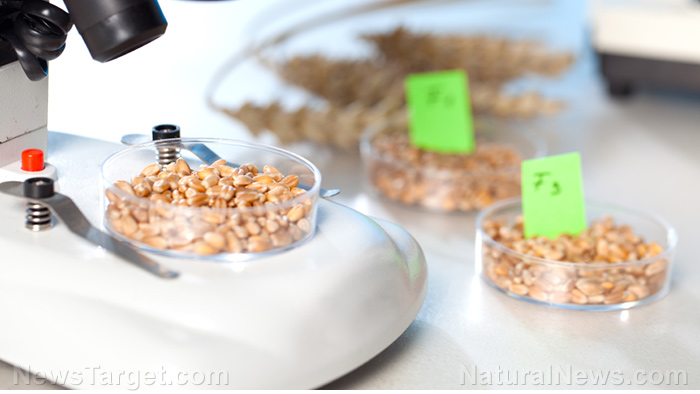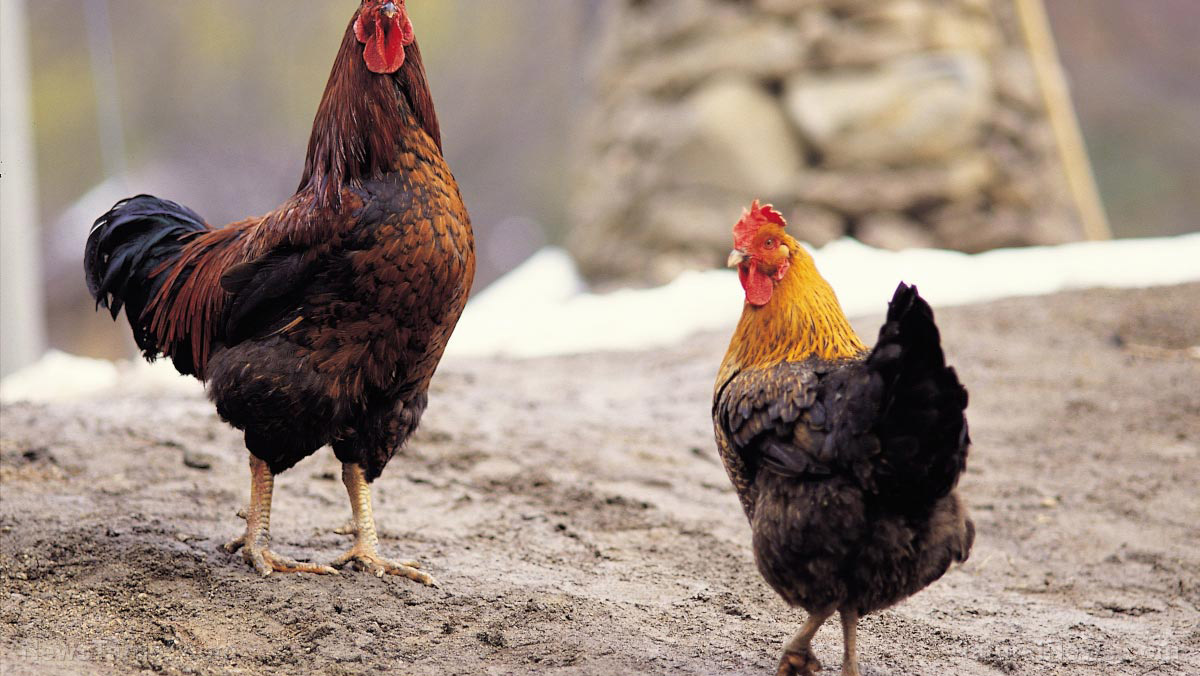
Advertisement
Companies are growing bolder as they continue to sell various GMO products to unwitting consumers. One such company is Moolec, which produces Piggy Sooy – a soybean genetically engineered to contain pig protein.
Moolec, the U.K.-based company that developed this Frankenfood, said that it spliced pig genes into conventional soya to create a soybean with 26.6 percent animal protein.
The exact pig genes used in Piggy Sooy are a trade secret. Because of genetic engineering, the interior flesh of the soybean is a rosy flesh color.

That’s not all. Moolec is also working on a pea plant that produces beef protein. The company claimed that these transgenic hybrids will have a similar taste, texture and nutritional value as meat, but without the high cost of cultured or lab-grown meat alternatives.
According to Moolec, farmers apply conventional agricultural practices to grow the plants used to make Piggy Sooy. After the beans are harvested and processed using conventional techniques, their proteins will be used to make meat substitutes and other products.
Moolec added that the commercial adoption of Piggy Sooy could help eliminate the raising and slaughtering of pigs, along with the associated ethical and environmental concerns.
Amit Dhingra, Moolec’s chief science officer, said the company has worked on a “unique, successful and patentable platform for the expression of highly valuable proteins in the seeds of economically important crops such as soybeans.”
Dhingra added that Moolec’s achievement can help pave the way for the entire scientific community as it explores more ways to “achieve high levels of protein expression in seeds via molecular farming.”
The company noted that there is still no exact date on when Piggy Sooya may be available to consumers. (Related: FRANKENFOOD ALERT: Brazil approves planting of genetically modified wheat.)
Gene-edited plants are not safe
In June, scientists found that CRISPR/Cas gene editing causes significant changes in the plant genome.
Researchers observed “chromothripsis-like” effects after the application of CRISPR/Cas gene editing in the genome of tomatoes.
Chromothripsis is a phenomenon wherein several hundred genetic changes may occur simultaneously in a catastrophic event. The phenomenon can result in many sections of the genetic material getting swapped, recombined or lost.
The researchers also warned that this catastrophic cascade of gene swaps, recombination and loss occurs in mammalian and human cells because of gene editing.
This is the first time that scientists have found proof that chromothripsis also occurs in gene-edited plants, and unintended genetic alterations occur more frequently than first suspected as they also occur across large parts of the genome.
Data also found that gene-edited (GE) plants are not safe.
When both strands of DNA are cut, like in the case with CRISPR/Cas, the ends of the chromosomes can lose contact with each other. When the repair of the break in the chromosomes fails, the severed ends can be lost, restructured or incorporated elsewhere.
Chromothripsis seems relatively rare in plants. CRISPR/Cas applications can also cause changes at genomic sites that are rather well-protected by natural repair mechanisms.
Because the risks cannot generally be estimated, scientists must investigate them thoroughly in every case.
The recent findings can help researchers learn more about the alleged “precision” of gene scissors. While new technology can be used to target and cut precise locations in the genome, the consequences of “cutting” the genome are, in some ways, still unpredictable and uncontrollable.
This means plants obtained from new genetic engineering (New GE) cannot be regarded as safe per se, and they may need to be thoroughly investigated for risks.
Without exact genomic analyses, chromothripsis can be overlooked. For example, it is likely that it also occurred in plants obtained from New GE that were already deregulated in the country, warned experts.
To date, the U.S. has no specific regulations for gene-edited plants. Additionally, the same regulations that apply to conventional crops apply to GMOs.
In May, the Environmental Protection Agency (EPA) published a final rule on “Pesticides and Exemptions of Certain Plant-Incorporated Protectants (PIPs) Derived from Newer Technologies,” which now requires GMO developers to submit data that proves plants that were gene-edited to resist pests are harmless to other components of the ecosystem; don’t contain pesticide levels beyond those found in conventional crops; and won’t cause adverse side effects in consumers.
Learn more about GMO food products at GMO.news.
Watch the video below to learn more about the hidden dangers of GMO foods.
This video is from the Corruption Exposure channel on Brighteon.com.
More related stories:
Attack on food supply: Bill Gates pushing for genetic modification of farm animals.
Bill Gates pushing to transform natural bananas into GMO FRANKENFOOD.
Sources include:
Advertisements







